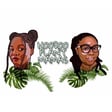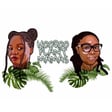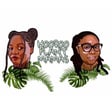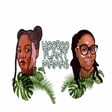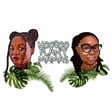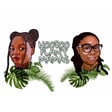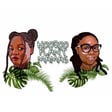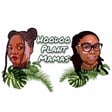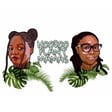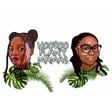
Ep 54: Making a Creative Life with Julia Mallory
In this episode, guest Julia Mallory returns to talk about how she's turned her life into art. We discuss believing in yourself, circumventing gatekeepers, and putting your work in the world on your own terms. Julia talks about how her creativity expands to other formats like reiki, and we discuss the necessity of creativity in surviving today's world.
Julia Mallory is committed to being a good steward of, and vessel for her ancestors' stories. As a storyteller, her foundational creative love language is poetry. She is the founder of the creative container, Black Mermaids, and a poetry editor for The Loveliest Review. Julia is also a visual artist and emerging filmmaker whose work has screened from Toronto to Iceland. Her latest loves include creating stop-motion animated collages and building TEN OH! SIX, a multi-generational community space for collective learning, connection, and creativity. Julia is the mother of three children and is from the Southside of Harrisburg, which she affectionately refers to as “the lil chocolate city that tries.” For more information, visit www.thejuliamallory.com.
RESOURCES
- Survivor's Guilt by Julia Mallory
- Breathe by Julia Mallory
- "Belle's Boy" by Julia Mallory
- "You are the Second Person" by Kiese Laymon
- The Salt Eaters by Toni Cade Bambara
Create your podcast today! #madeonzencastr
BOOKSHOP
https://bookshop.org/shop/hoodooplantmamas
Apocalypse Still by Leah Nicole Whitcomb
About the Boy by Leah Nicole Whitcomb
BE A PATRON!
https://www.patreon.com/hoodooplantmamas
SOCIAL MEDIA
Instagram: @hoodooplantmamas
DONATE
Paypal: paypal.me/hoodooplantmamas
Cashapp: cash.me/$hoodooplantmamas
This podcast was created, hosted, and produced by Dani & Leah.
Our music was created by Ghrey, and our artwork was designed by Bianca.
